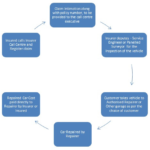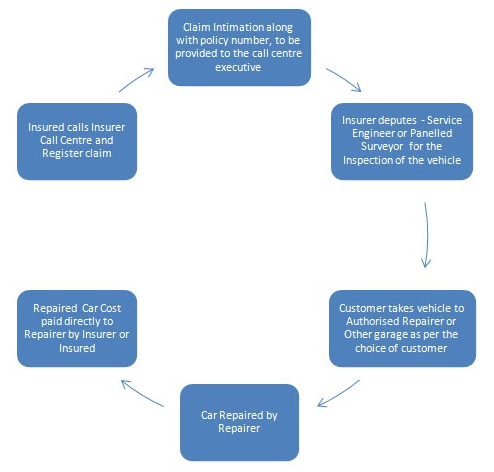When it comes to purchasing car insurance, one of the most significant factors that insurers consider in determining your premium is your driving record. A clean driving history can help you secure lower rates, while a poor record, marked by accidents, traffic violations, or other infractions, can increase your insurance costs. In this article, we will explore how your driving record affects your car insurance rates, why insurers use this information, and what steps you can take to improve your record and save on premiums.
Why Your Driving Record Matters to Insurers
Insurance companies are in the business of assessing risk. They use various factors to determine how likely you are to file a claim, and your driving record is one of the most reliable indicators. Your driving behavior provides insurers with a direct correlation to how risky you are behind the wheel. Statistically, drivers with clean records are less likely to be involved in accidents, making them less of a financial risk. On the other hand, a history of accidents or traffic violations suggests a higher likelihood of future incidents, which results in higher premiums.
How Insurers Assess Your Driving Record
When an insurance company evaluates your driving record, they typically look at several key factors:
- Accidents: If you have been involved in an accident, your insurer will look at whether you were at fault. If you caused the accident, it will be recorded as a fault accident, which will likely cause an increase in your insurance rates. Even if you weren’t at fault, your premiums may still go up, particularly if the accident involved a significant amount of damage or personal injury.
- Traffic Violations: Speeding tickets, running red lights, failing to yield, and other traffic violations can negatively affect your rates. The more serious the violation (such as reckless driving or driving under the influence), the more significant the impact on your premiums. Insurers often use points from violations as a measure of risk, and a higher number of points means a higher premium.
- DUI/DWI: A DUI (Driving Under the Influence) or DWI (Driving While Intoxicated) conviction is one of the most serious offenses on your driving record and can drastically raise your car insurance premiums. A DUI typically results in a long-term increase in rates because it indicates a high level of risk to insurers. In some cases, a DUI can stay on your record for years, making it a major factor in determining your rates.
- At-Fault Accidents: When you are deemed to be at fault in an accident, it signals to insurers that you are a higher-risk driver. Being involved in an at-fault accident usually results in a significant increase in premiums. The increase can vary depending on the severity of the accident and whether it involved injuries or major damage.
- License Suspensions or Revocations: A suspended or revoked license is another red flag for insurers. If your license was suspended due to a serious offense, such as a DUI or multiple violations, your insurance rates will likely rise significantly. Some insurers may even refuse to cover drivers with suspended or revoked licenses.
- Number of Claims: Insurers also consider how many claims you’ve made in the past. Even if you weren’t at fault in an accident, filing multiple claims can raise red flags. Frequent claims indicate that a driver is more likely to be involved in accidents in the future, which increases the perceived risk for insurers.
How a Poor Driving Record Affects Your Premiums
The impact of a poor driving record on your car insurance rates can vary depending on the severity of the violations and the insurance company’s policies. Generally, the more severe the offense, the higher the increase in your premiums. Here’s a breakdown of how different issues can affect your rates:
- Minor Violations: Minor violations, such as a speeding ticket or a failure to signal, can cause a moderate increase in your premiums. The rate increase might be relatively small, but if you accumulate several minor violations over time, the cumulative effect can lead to a significant rise in your premiums.
- Major Violations: Major violations, such as running a red light, driving without insurance, or causing a minor accident, can result in a larger rate increase. The exact increase will depend on the insurer, but you can expect premiums to go up by anywhere from 10% to 50%, depending on the severity of the violation.
- DUI/DWI Convictions: A DUI or DWI conviction is one of the most damaging things that can appear on your driving record. Depending on the insurer, a DUI can raise your rates by 30% to 100% or more, and it may stay on your record for up to 10 years. Some states have minimum insurance requirements for drivers with DUIs, which may require higher premiums to comply with the law.
- Multiple Claims: If you’ve made several claims, especially in a short period, your premiums may rise significantly. The more claims you’ve filed, the higher the perceived risk to the insurer. Multiple claims can lead to premium increases of up to 50% or more.
- At-Fault Accidents: An at-fault accident can cause a substantial increase in your premiums. The exact amount depends on the insurance provider and the severity of the accident. In some cases, the insurer may increase your premium by 20% to 50% or more after an at-fault accident.
- License Suspensions or Revocations: If your license is suspended or revoked due to a serious infraction, you may find it difficult to secure car insurance at all. If you do find coverage, you can expect significantly higher premiums. Insurance companies view drivers with suspended or revoked licenses as high-risk, and they may charge premiums that are several times higher than for drivers with clean records.
How Long Do Driving Violations Affect Your Rates?
The length of time that a violation impacts your insurance premiums depends on the nature of the offense and the state laws governing insurance. In general, here’s how long various driving violations might affect your rates:
- Minor Violations (e.g., speeding tickets): Minor violations typically stay on your record for 3 to 5 years. After this period, they may no longer affect your premiums, but insurers may still take your past violations into account when determining your rates.
- At-Fault Accidents: At-fault accidents typically stay on your record for 3 to 5 years, after which they may no longer directly impact your premiums. However, insurance companies may still consider your accident history when setting rates.
- DUI/DWI: DUI and DWI convictions can stay on your record for much longer, sometimes up to 10 years or more. This will likely result in higher premiums for the duration of the conviction period.
- License Suspensions: A license suspension can affect your rates for a long period, often up to 3 years or more. In some cases, a license suspension may lead to the loss of coverage altogether until your driving privileges are restored.
How to Reduce the Impact of a Poor Driving Record
If your driving record is less than perfect, there are several steps you can take to minimize the effect on your car insurance premiums:
- Shop Around: Different insurance companies have different pricing models. Some may be more forgiving of minor infractions, while others may penalize you more heavily. It’s important to shop around and compare rates from different insurers.
- Take a Defensive Driving Course: Some insurers offer discounts to drivers who complete defensive driving courses. Taking one of these courses can help reduce the number of points on your record, which may lower your premiums.
- Maintain Continuous Coverage: If you’ve had a gap in coverage, some insurers may consider you a higher risk. Maintaining continuous insurance coverage can help you avoid a premium hike due to a gap in coverage.
- Consider a Higher Deductible: If you have a poor driving record, consider increasing your deductible. A higher deductible lowers the insurer’s risk and can result in lower premiums.
- Improve Your Driving Habits: Over time, a history of safe driving can help offset past violations. The longer you go without incidents or violations, the less impact your past mistakes will have on your premiums.
Conclusion
Your driving record is one of the most influential factors that determine your car insurance premiums. A clean record typically results in lower rates, while a poor record with violations, accidents, or suspensions can lead to higher premiums. However, by understanding how insurers assess your driving behavior and taking steps to improve your record, you can potentially reduce the financial impact of your past mistakes. Whether it’s through defensive driving courses, shopping around for better rates, or improving your driving habits, there are several ways to help manage your car insurance costs, even if your driving record isn’t perfect.







